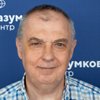Analysts debate if there is anything that can change the public opinion in Russia about the so-called "special military operation" (which Putin himself recently termed a war). It was thought that mobilization could influence the opinion of Russians, as it breaks the existing social contract in Russia called "war only on TV", or the forced withdrawal of Russian troops from Kherson, as it evidenced the failure of the Russian war strategy.
Regarding Kherson, the hysteria of Russian nationalist ideologues allegedly confirmed these assumptions. Here is what Aleksandr Dugin, the most notorious among them, wrote about this: "A Russian city is surrendered, the capital of one of the Russian regions — same as Belgorod, Kursk, Donetsk or Simferopol. If you don't care, then you are not Russian. Russians are now clenching their teeth in pain, sobbing and suffering as if their hearts were torn out, their children, brothers, mothers and wives were killed before their eyes. If you are not in pain now, you are nonentity."
However, according to the survey conducted by the Russian Institute of Conflict Studies and Analysis at the end of November — beginning of December (with 1,208 respondents interviewed based on an all-Russian sample), 74% of Russians positively assessed the retreat of Russian troops from Kherson, 8% — negatively (https://ikar-thinktank.org/ru/explorations/14). So, it will be interesting for Mr. Dugin to learn that "Russians" make only 8% of the adult population in Russia, and "nonentities" make 92%.
"Partial mobilization" did not influence public sentiment. Despite its conduct, 61% of the polled Russians believes that partial mobilization in the fall was a right decision, and 58% of respondents said they would also support general mobilization.
Half of Russians is in favour of an indefinite "Special military operation", lasting "as long as necessary." At the same time, 69% would be glad if the special military operation ended tomorrow. Regarding missile strikes on critical energy infrastructure of Ukraine, 63% of Russians supports such actions of their military-political leadership.
But there is one nuance here: significant differences in the answers between young people and representatives of the older generation. If among those who are 55 and older, the majority (56%) says that the "Special military operation" should last until all its goals are achieved, among young people under the age of 30, only 29% says so. 30% of young people believes that it should last no more than a month, another 8% — no more than a few months, and 11% — no more than half a year. At the same time, 84% of young Russians would be happy if the "Special military operation" ended tomorrow (among representatives of the older age group — 58%).
Regarding support for strikes on Ukraine's energy infrastructure, representatives of the older generation of Russians were also the most bloodthirsty: 71% of them supports such strikes, versus 39% of the young people (45% does not support them).
So, the Russian sociologist Igor Eidman, who characterizes the political regime in Russia as "senile fascism", is right: "Now in Russia ... pensioner, old-timer, impotent fascism is in power. Putin is old, the main support of his ego in the country also comes from old people. Judging by polls and my personal observations, they are the ones who most willingly support the dictator and the war."
Interestingly, Russian "old-timers" express willingness to go to the army in the event of a general mobilization much more often than young people (50% and 39%, respectively), although these "patriotic grandfathers" know very well that the vast majority of them will not be mobilized. Among young people, the majority (54%) reports that they are not going to join the army even in case of a general mobilization.
To some extent, the position of young people is influenced by the fact that almost every sixth of them (16%) has relatives, friends, neighbours or colleagues who died in Ukraine (while only 7% of the older generation has such relatives).
The main conclusion that can be drawn from this survey is that the majority of Russians (primarily the older generation) approves absolutely everything that comes (or can potentially come) from the Russian leadership: shelling Ukrainian cities, continuation of the "Special military operation" as long as necessary is okay, stopping it tomorrow — even better, leaving Kherson — that's right, leaving Simferopol — let it be, Putin dies — hell with him (the classic Soviet phrase comes to mind: "With a sense of deep satisfaction, the working people of Tambov region met..."). In this sense, public opinion polls in Russia are somewhat reminiscent of attempts to measure the body temperature of a dead person. This job is unnecessary, because it is easier to measure the air temperature in the room where this body is located.
In the same way, in order to find out the opinion of Russians, it is not necessary to conduct public opinion polls — it is enough to watch propaganda programmes on the main state TV channels, and the public opinion will necessarily reproduce their content and main "ideological messages".
Source:




